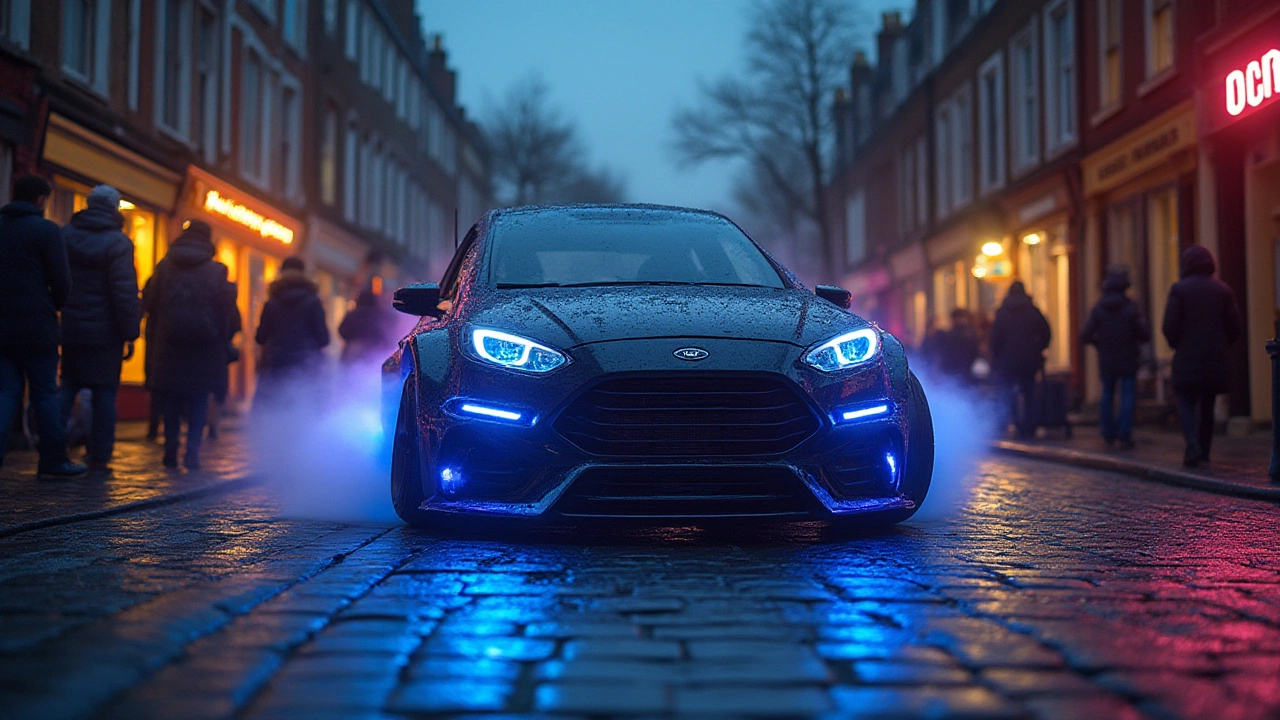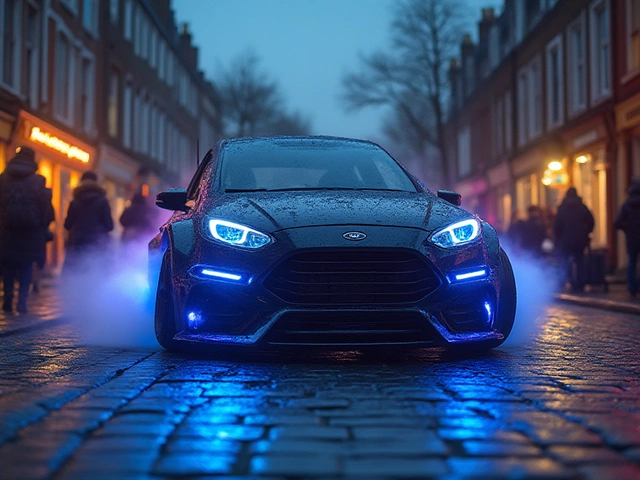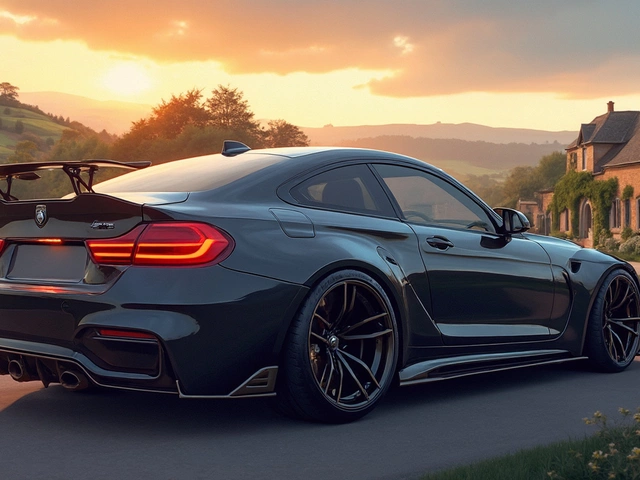Ever heard a car drive by with a chorus of sharp snaps and booms from its exhaust, making you glance over your shoulder? Those sudden mini explosions, known as pops and bangs, have sparked endless debates in car communities and local neighborhoods alike. Some folks love the raw, aggressive soundtrack; others see red when their quiet street turns into a racetrack. But once you get past the attention-grabbing noise, is there a dark side to these dramatic exhaust theatrics? Let's break down the reality, minus the hype.
How Pops and Bangs Actually Happen
Pops and bangs come from unburnt fuel igniting in your car’s exhaust system. It usually happens when tuning a car's ECU (engine control unit) to inject extra fuel during deceleration or when the throttle closes. The fuel doesn’t burn off completely in the engine, so it combusts in the hot exhaust as it exits. That’s what creates the sharp, gunshot-like sounds. This phenomenon isn’t just a byproduct of modern mods; even classic rally cars playing with anti-lag and race-tuned engines produced these effects years ago.
To nail down pops and bangs, tuners often tweak ignition timing and fuel cut strategies. Sometimes they'll retard the ignition so the spark happens later in the combustion cycle. Instead of burning in the cylinder, the fuel-air mix “pops” in the exhaust. Surprisingly, manufacturers like BMW, Audi, and Volkswagen now program pops and crackles into their performance models for that extra drama. Want to hear this without aftermarket parts? A stock BMW M340i or Audi RS5 will happily show off on a spirited downshift.
However, there’s a big difference between factory-tuned crackles and those from aggressive aftermarket tuning. Automakers keep things within safe margins—no one wants engine recalls. But in the aftermarket world, risk often gets traded for more noise, and that’s where issues can start sneaking in.
What Pops and Bangs Do to Your Engine and Exhaust
This is where things can get gnarly. When pops and bangs happen on purpose, the exhaust system is taking more heat and pressure than it was ever designed for. That constant fuel combustion after the combustion chamber spikes temperatures, which stresses metal components. Isolated crackles now and then probably won’t wreck anything right away, especially if they’re factory-approved. But repeated, aggressive ‘fireworks’ from an overeager tune? That’s playing with fire—literally and figuratively.
Let’s look at the main trouble spots:
- Exhaust valves – These are right in the line of fire. Hot, unburnt fuel detonates on its way out. Over time, exhaust valves can get scorched or warped, which leads to loss of compression and power.
- Catalytic converter – If your car still has its cat, pops and bangs supercharge the heat and chemical reactions inside. The ceramic core gets hammered, which can melt, crack, or block it. That’s a pretty hefty bill when the check engine light blinks.
- Oxygen sensors – All that unburned fuel and extra carbon can foul your sensors, causing bad air/fuel readings and, down the line, rougher running.
- Mufflers and pipes – That pop is a shockwave. Enough repeated blows and weld seams or muffler baffles can get loose, rattle, or visibly fail.
If you’re chasing YouTube-worthy fireballs just for fun, keep in mind: high maintenance costs add up fast. I’ve seen cars need new exhaust bits after a year of running overly aggressive pop-bang tunes. Even friends have confessed their flashy backfires started costing more than their cars were worth. Trust me, Emily isn’t impressed with those repair bills either.
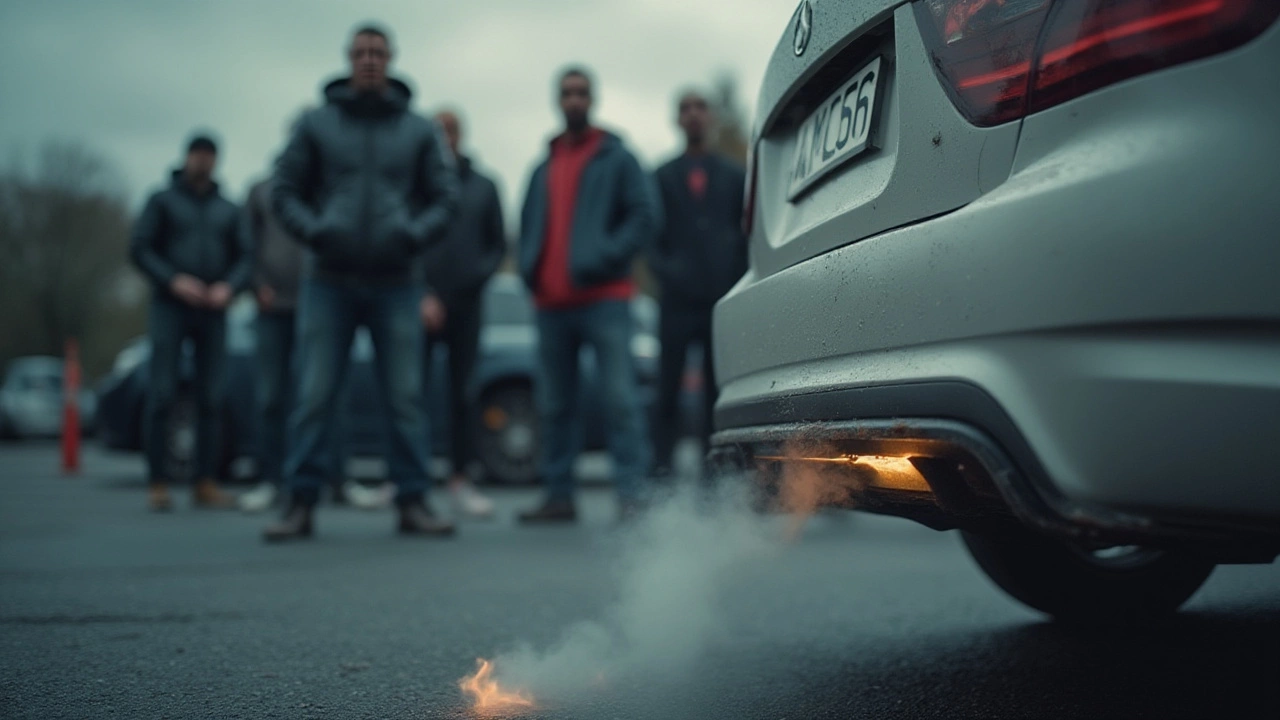
Pops and Bangs: Legal and Social Risks
It’s not just the hardware at risk. The legal side packs a punch, too. In lots of cities and countries, deliberately making your car sound like a fireworks show is just not allowed. Police crack down on ‘anti-social’ exhaust noises, sometimes impounding cars or handing out on-the-spot fines. In the UK, police carry decibel meters. In parts of the US, states like California have some of the strictest noise limits and actively fine for “modified mufflers.” You can even fail your annual inspection if the tester hears one pop too many.
Insurance is another headache. Many policies specifically exclude non-declared mods, especially those affecting emissions or exhaust noise. If you crash and the adjuster finds out about your pop-bang map, you might be footing the bill regardless of who’s at fault. Manufacturers may also void warranties if they catch wind of anything outside approved software updates.
On a more personal level, not everyone is a fan. Local forums are full of folks ranting about the “loud BMW” or “that kid with the flame-throwing Focus.” Neighbors complain. Cops get called. Sometimes, you even see “no cruising” zones pop up just because a few enthusiasts couldn’t leave well enough alone. If you live in a quiet neighborhood and Max, my dog, starts howling every time a car backfires down our street, it might be time to rethink the drama.
Are Pops and Bangs Ever Safe?
Now and then, you get the best of both worlds. If your car comes from the factory with a mild crackle tune—think Mercedes AMG or some spicy Golf Rs—it’s not likely to grenade itself any time soon. Automakers spend millions making sure those sounds are more show than risk. But if you’re using an aftermarket pop-and-bang tune, it really depends on how aggressive it is and the quality of the calibration. Reputable tuners can adjust settings to keep things fun without sending your exhaust system to an early grave.
Here’s where it gets specific. Controlled, less aggressive tunes simply add a bit of extra fuel or nudge the ignition timing, keeping the explosions subtle and brief. They don’t fry exhaust valves or overheat the catalytic converter. Factory crackles rarely cause problems, and occasional, minor pops from a well-calibrated aftermarket file might not toast your wallet either. But the line is thin. Go overboard chasing big Instagram-worthy flames and you'll risk reliability fast.
- If you can smell strong unburned fuel regularly, that’s a warning sign you’re running way too rich. That means more risk to your engine and cats.
- Hotter climate? Heat builds up faster, and the extra stress can really add up. Your cooling system—and your patience—will thank you for dialing it back.
- Daily driver? Maybe don’t treat your exhaust to daily fireworks. Save it for the odd tunnel run or car meets rather than every commute to work.
At car shows, pops and bangs draw a crowd. But on busy streets, it can feel like you’re making enemies faster than friends. Use it like a party trick—not something you do at every stoplight.
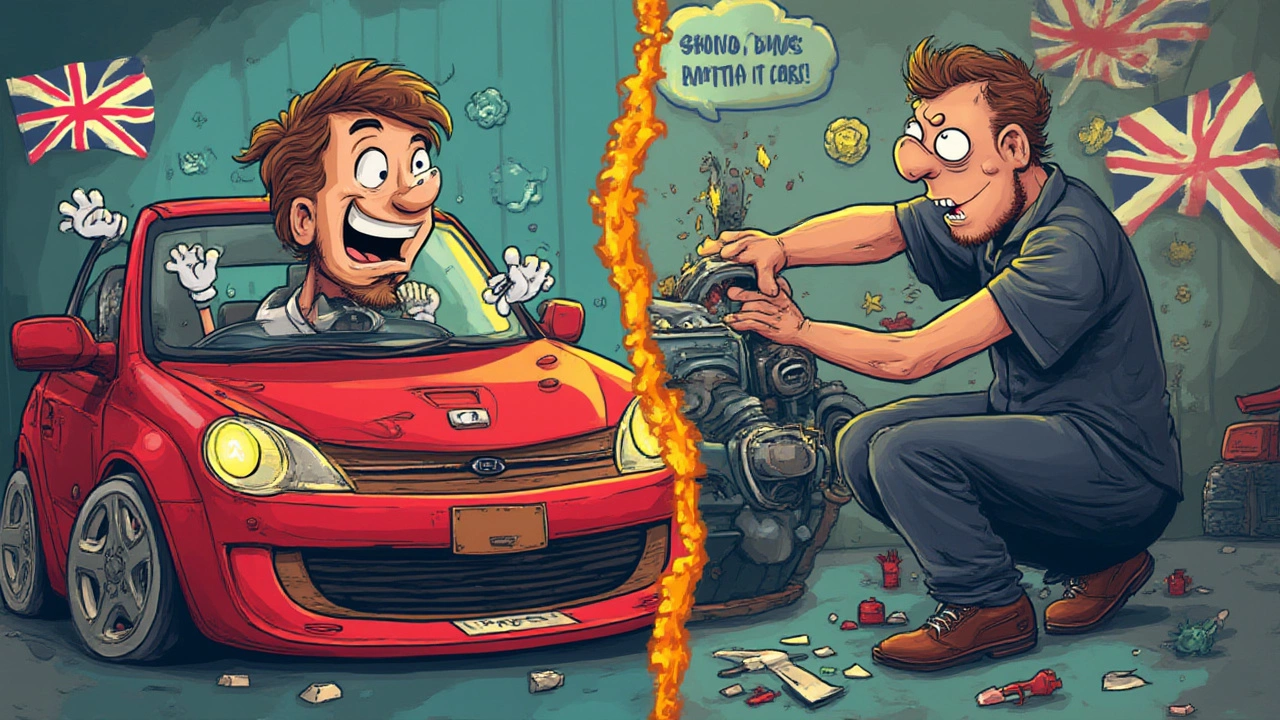
Tips for Responsible Mods and Quieter Enjoyment
If you’re set on adding pops and bangs to your build, there’s a smarter way to do it. First, always go to a reputable tuner who knows your car’s platform, not just someone with a laptop and a “fireballs for $100” sign. Ask if they have experience keeping reliability and emissions in check. If they shrug off your questions about fuel trims or exhaust temps, walk away.
Try to install a switchable map or ‘burble on demand’ feature. Many high-end ECUs let you toggle between stock and pop-bang maps with a button or even your key fob. That means you keep things quiet for daily drives, but fire up the drama for the right moment. If you’re worried about the legal side, double-check your local noise and emission laws and see what’s actually enforced.
Don’t fall for the myth that ‘more is better.’ Aggressive pops may sound cool on video but usually mean the hardware is being abused. Gradually ramp up intensity until you find a sweet spot—enough to get a smile, not enough that your wallet screams each year at inspection time.
- Keep your exhaust well-maintained. Look for signs of heat discoloration or rattling. If your car’s getting louder or smells “off,” you might be damaging key parts.
- Talk to your insurance and see what they’ll actually cover with your current mod list. Better to know than to get caught out later.
- If noise and attention are your main goal, there are legal ways to tweak your exhaust note, like performance mufflers or resonated pipes, that won’t torch your engine or get you tickets.
- Respect your environment—save the noise for car meets or tracks, not your neighborhood at 7 a.m. The best mods leave people smiling, not shaking their fists.
Bottom line, pops and bangs aren’t all bad—but they aren’t as innocent as they sound. Get advice, use common sense, and mods can be fun without wrecking your car or your reputation. If you do it right, you can have your crackles and keep your car on the road—no need for Max to start a protest every time you come home.

